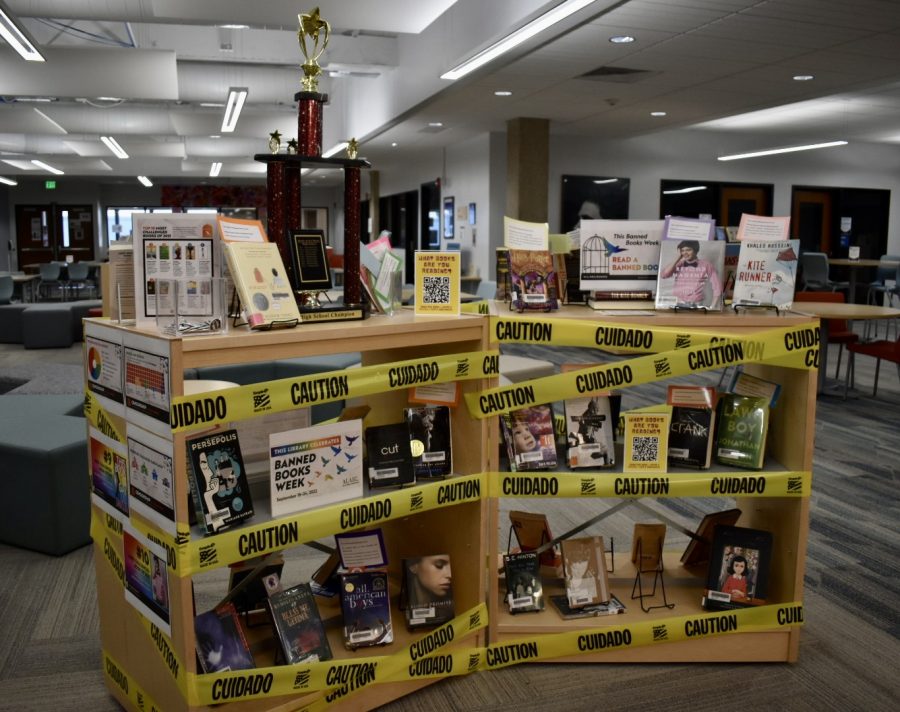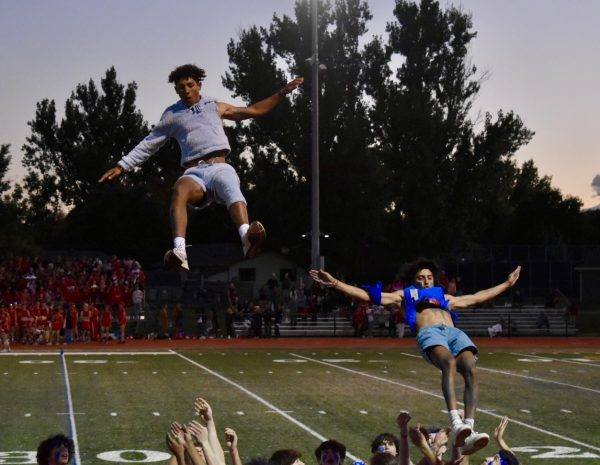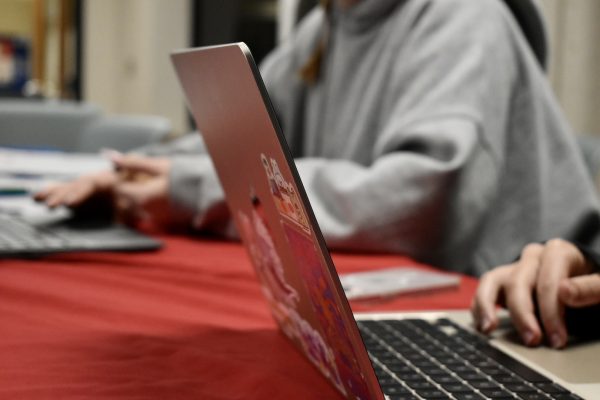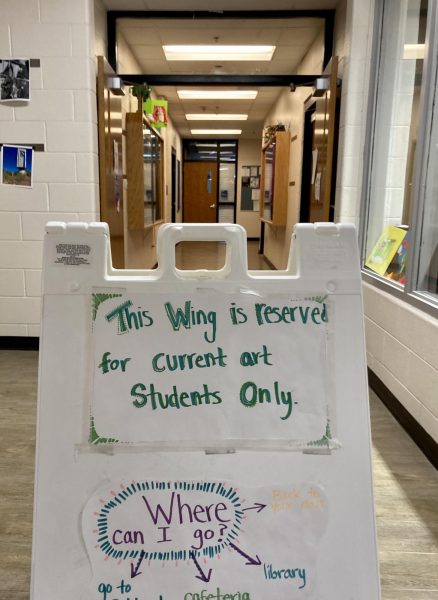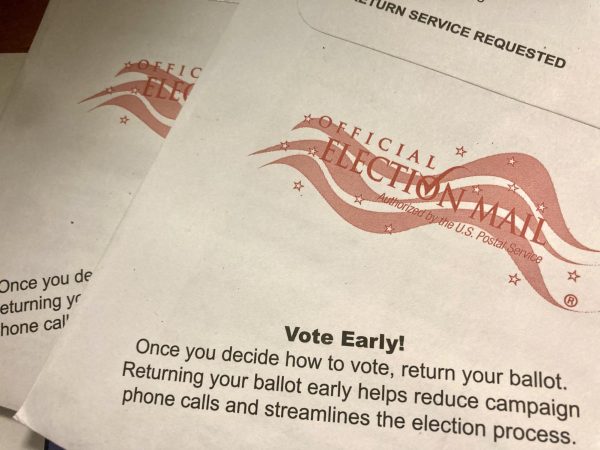Mr. Houk on Banned Books Week (Sept. 18th-24th)
Mr. Houk, new library assitant, explains the history and importance of the event.
The Banned Books Week display in the library.
Q: Who are you?
A: Hi, I’m Mr. Houk, Mrs. Turgel’s new assistant in the library. I’ve been a substitute in the school for years, but now I’m officially here. I’m a little bummed about not seeing you all in classes anymore, but am excited to be a part of the wonderful space Mrs. Turgel (and you all) have created.
Q: So what is Banned Books week?
A: Banned Books Week is a time to recognize and appreciate books that, for one reason or another, have been challenged, banned, or blacklisted from public libraries, schools, and other places.
Q: Who bans books?
A: Based on the numbers from the American Library Association (ALA), parents initiate most of the challenges. Patrons (i.e. students or library users) are next, followed by school boards and administrations (superintendents and principals).
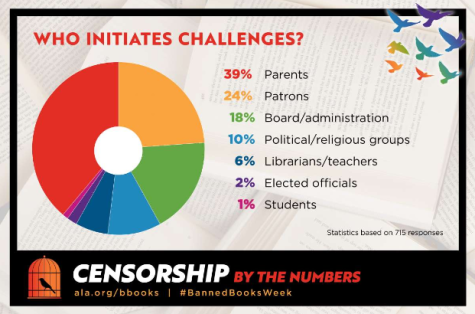
Q: Why are books banned?
A: Books can be banned for a variety of reasons, such as offensive scenes, remarks against royalty or religious institutions, shady characters, or vulgar language. Here’s a Word Cloud produced by the American Library Association that shows the main reasons for challenges in 2021:
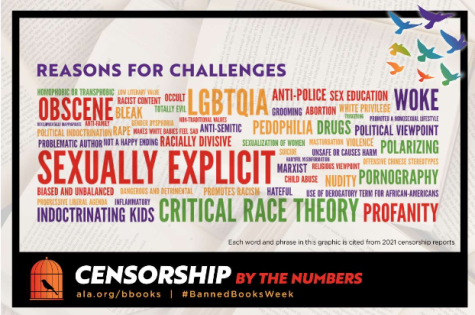
The bigger the font, the more often it is used in reasoning.“Sexually Explicit” is the biggest phrase, so this phrase is the most common used. This is a broad term, and likely includes many other topics, including LGBTQIA+ issues.
Q: Is it possible to learn anything else from this data? How do we make sense of it?
A: Yes, if we pay attention to how language is being used. Groups and subcultures of people use their own “inspeak” (lingo, buzzwords, phrases, etc) and some of these show up on the word cloud above.
It is important to note the diversity of reasons for banning; all the banning isn’t coming from one type of group with an agenda. Despite the numerous codes for queerness being present, “homophobia and transphobia” are still on the list, indicating that people want books that either include or promote these concepts out of our libraries. Sometimes, just the mere presence of a book can be triggering for some students, and it can feel like an attack on who they are.
Books that deal with racial issues are also frequently challenged and banned. The phrases “Critical Race Theory”, “Woke”, and “Anti-Police” are often phrases used to describe books that deal with issues of race in America. That’s a big topic that I don’t have the space to discuss here, but for more info, here’s a really good website. (Orrrr come by the library and if you help me shelve some books, I’ll give you the rundown :).
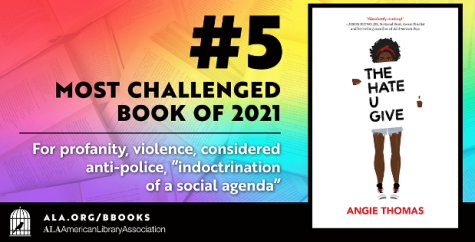
Finally, it’s important to note that books that are banned are often controversial because they reveal some kind of previously unseen or not talked about problem lurking under mainstream discourse. Many of what we now consider “Classic” books were banned at the time of their publication, and are considered classic because they were the first to reveal something about the human experience that nobody else had yet dared put out into the open. One look around contemporary America and we can see why the books banned for these reasons are likely to be “future classics”.
Q: So wait, what about the 1st Amendment? Don’t we have free speech? How is any of this legal?
A: It is extremely hard to get books banned on a state or national level, so the fight typically happens at a more local level, where specific spaces can be targeted (like school libraries). Bans are not preventing books from being published and distributed everywhere… just in particular spaces. Sometimes, though, the fights escalate all the way up to the Supreme Court. In 1982, Board of Education, Island Trees Union Free School District v. Pico established that public schools can ban books that are “pervasively vulgar” or not right for the curriculum, but they cannot remove books “simply because they dislike the ideas contained in those books.”
Q: Is Banning Books ever effective?
A: Not really. There is a social phenomenon called the Streisand Effect, named after the singer Barbara Streisand. In 2003, an aerial photograph of Barbara Streisand’s Malibu beach front estate was being used by geologists as an example of coastal erosion. She felt it was an invasion of her privacy, so her lawyers sued the photographer for $50 million(!!!). Since court proceedings are public record, the image spread across the internet, becoming much more popular than it ever would have if Streisand hadn’t ever said anything at all. It’s ironic: in the effort of hiding something, she inadvertently made it a million times more visible. It works the same way for banned books in that publicity and controversy make the book more popular.
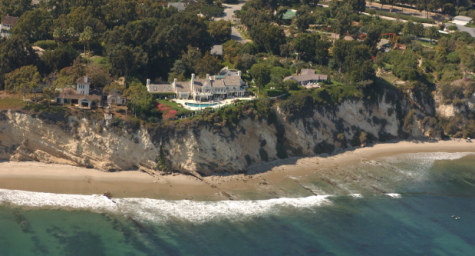
Q: So is it ever okay to ban a book?
A: Well, that’s a tricky one, it’s a personal belief, and part of why thinking about banned books is vitally important. I personally think there are valid reasons to limit access to some books. Ideas can be volatile like chemicals. It would be very irresponsible for science teachers to just leave out anthrax or other dangerous chemicals for students to experiment and play with. Likewise, a book about how to make anthrax might be reasonably banned from a school library.
Looking beyond those types of niche situations, reading IS a dangerous thing – that’s why it’s a powerful thing. It can expose you to viewpoints that are different from yours, and those new views can challenge or directly threaten who you are, the world, and how you impact others. This is a very emotional process (hence, why people are so angry at these meetings). We should keep that in mind when thinking about this stuff. But it’s not like banning them really works, so we should instead focus on how to deal with this stuff in mature, healthy, and conscious ways. It is important for us to do the hard part of exploring the ideas, facts, and stories of the world, so that we may learn from the awful stuff of the past and make a better future. This is why banning books that might help us do this is so dangerous: it denies us this opportunity. And it’s important to think about and be part of the discussion about banning books, because if sensible people don’t, we let crazy people run the conversation (and the world).
Q: Are there any current challenges in our school district?
A: Not currently (fortunately).
Q: So what’s happening during the library during Banned Books Week?
A: We have a section of books (wrapped in CAUTION tape, right in front of the circulation desk and next to the chess table) that have all been banned. Many of them have little bookmarks in them with a brief explanation of why they’re banned. Come in and check out the books (literally, check them out!), and as always, Mrs. Turgel will take any orders for books that you may want that we don’t have! We also have a new run of custom buttons!
Banned books week takes place from September 18th-24th. Stop by the library to check out their selection and celebrate your freedom to read!
Your donation will support the student journalists of Centaurus High School. Your contribution will allow us to purchase equipment and cover our annual website hosting costs.
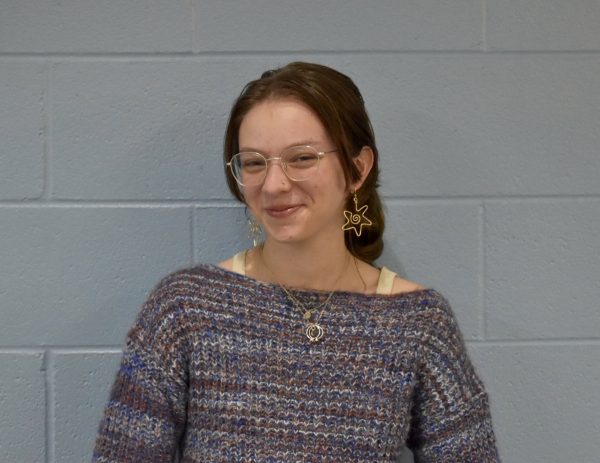
Shira Nathan (aka Ira) (they/them) is one of the Editors-in-Chief of The Warrior Scroll and a senior at Centaurus. This is their fourth year and final...


